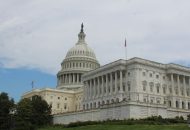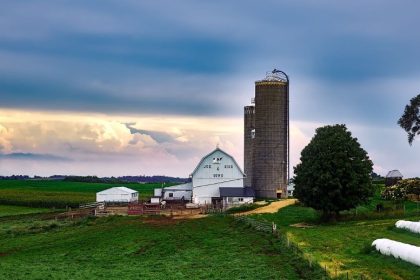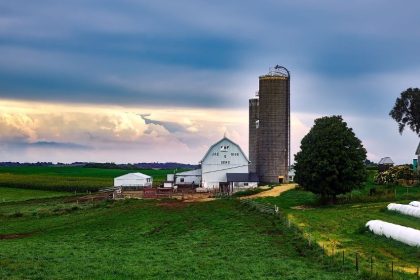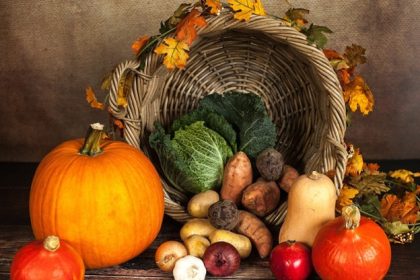Dairy Farmer Groups Launch Bid for Better Post-Pandemic Milk Pricing

Four Midwestern dairy groups who saw their revenues plummet as a result of the coronavirus pandemic have proposed a new pricing plan they hope will create greater long-term stability in fluid milk pricing and reduce the chance of similar income disruptions in the future.
The proposal put forth by Dairy Business Association, Edge Dairy Farmer Cooperative, Minnesota Milk and the Nebraska State Dairy Association comes after the groups began studying their options earlier this year.
Before explaining the proposal, however, it might be good to review the arcane way milk products are priced in this country and exactly what happened during the first several months of the pandemic.
Milk pricing in the United States is based on four classes of milk products. The first and typically most valuable class, is fluid milk. Then there’s a class for cheese, another class for soft products, like ice cream and yogurts, and a final class for butter.
The pricing system in place today was a byproduct of the Great Depression, when there was a concern about there being enough fluid milk supply for the nation, explained John Holevoet, the director of government affairs for Edge Dairy Farmer Cooperative and the Dairy Business Association.
“The idea was to make sure we had a pricing system in place that provided an adequate fluid milk supply, which was a serious concern at the time, particularly in the Southeast and even in the West,” he said.
“So they kind of cobbled together this system — known as Federal Milk Marketing Orders — and placed them under the purview of the Department of Agriculture,” Holevoet said. “There are some good aspects to it, and changes have been made over time, but it’s hard for people — sometimes even people inside the industry — to understand.”
The main thing to understand is that dairy producers buy their milk from the dairy farmers, essentially pooling their money for the raw materials that eventually wind up on your dairy shelf.
The second thing to understand is that the Federal Milk Marketing Orders uses a formula to determine the relative price of each milk class.
“Sometimes the prices do weird things in relation to each other, and that dramatically impacts what the farmers are actually paid,” Holevoet said.
In short, the pandemic and the response to it, basically shredded 80-year-old assumptions.
“What happened was, cheese demand crashed because the restaurants closed, but then it rallied in a really big way,” Holevoet said. “It really went up, because people were eating more cheese at home, then restaurants reopened on a limited basis and finally, you had the government buying a bunch of cheese for food box programs because it’s easier to store and less perishable than fluid milk or soft cheese and yogurt.”
“The end result was that the price of cheese — which is class three, by the way — was higher than everything else and stayed that way for an extended period — in fact to an extent that we’ve never seen historically.”
Most reading that last statement would think that was a good thing for the dairy producers and farmers alike. But remember, there’s a convoluted formula at play in dairy pricing, so participants in the pool had to pay more into it to try to keep it in balance.
“The result was what we refer to as ‘negative producer price differentials,’ meaning of course, that what profits were to be made were basically wiped out for most of the guys,” Holevoet said.
“The long and short of it is, they had to pay into the pool to cover the extra money they were getting from the explosion in cheese prices, and they were getting dinged.”
“Everything was upside down, largely because we couldn’t really have anticipated the impact COVID would have on prices. And remember, this is a huge, global business, so for some individual dairy farms, the losses were in the hundreds of thousands and in some cases even millions of dollars.”
Amy Penterman, a Wisconsin dairy farmer and president of the Dairy Business Association said the proposal the four dairy entities have made, called “Class III Plus,” would, among other things, tie the price of Class I (fluid) skim milk to the Class III (cheese) skim milk price plus an adjuster and do away with so-called advanced pricing — a system once seen as advantageous because it allowed fluid milk producers to know their milk procurement costs up to six weeks in advance.
During the pandemic, those fixed prices proved to be an enormous handicap.
The proposal is also revenue-neutral, therefore more equitable among farmers, processors and customers, the four associations said in a written release.
Not everyone agrees on the solution. Just last week, the National Milk Producers Federation called for an emergency USDA hearing on its own Federal Milk Marketing Order proposal.
Like the four Midwestern associations, the National Milk Producers Federation says its plan will restore fairness for farmers, help them recover revenue lost during the pandemic, and establish a more equitable distribution of risk among dairy farmers and processors.
Estimating that dairy farmers lost over $725 million in income last year, the Federation says its plan would ensure neither farmers nor processors are “disproportionately harmed” by future significant price disruptions.
The Federation’s proposal would modify the current so-called “mover” for fluid milk — which adds $0.74/cwt to the monthly average of Classes III and IV milk products — by adjusting this amount every two years based on conditions over the prior 24 months.
The four Midwestern associations contend the Federation’s proposal improves a few components of the current pricing structure, but largely focuses on the short term and revenue that farmers did not earn in 2020.
They said Class III Plus provides a way for farmers to recoup, over the next four years, some of the revenue they might have missed out on in 2020, and also creates stability going forward, while enhancing their risk management ability.
“Cooperatives in our area have long called for a focus on Class III issues,” Lucas Sjostrom, executive director of Minnesota Milk, said in a written statement. “While those are unfortunately outside the scope of (NMPF’s) hearing request, keeping Class I milk the highest in most scenarios will keep Class III plants in the pool, and provide more orderly marketing for all FMMOs. This is a win for customers, a win for farmers and a win for processors.”
Kris Bousquet, executive director of the Nebraska State Dairy Association, said dairy farmers in his state are “extremely concerned” about the status of the Federal Milk Marketing Orders and how the current structure negatively impacts their milk price.
“The Nebraska State Dairy Association’s priorities while working on this proposal were that we wanted the pricing structure to be fair to all, and to bring back the farmers’ ability to forward contracts. Our joint proposal does just that and is the best path forward for the Nebraska dairy industry,” Bousquet said.
The groups also said NMPF’s proposal would likely result in requests for additional FMMO hearings and more changes just two years from now, causing further disruption and potentially jeopardizing the entire order system.
“We want to make sure that if a hearing is granted, the result will be lasting, beneficial changes to the pricing formula,” Edge President Brody Stapel, who farms in Wisconsin, said. “Federal Milk Marketing Orders need to be reformed, but an extremely limited hearing now, which NMPF is seeking, would destabilize the system rather than solve fundamental issues, which is our ultimate goal.”
Holevoet said a factor compounding the different position is that there’s no real fast process to make the changes being sought.
In making its request for an emergency hearing, the National Milk Producers Federation is seeking a limited consideration of its proposal, after which the USDA would have 30 days to issue an action plan that would determine whether the department would act on the changes on an emergency basis.
“There is a whole procedure in place to have public hearings to modify these orders,” Holevoet said. “But if the USDA appears likely to grant their hearing, it’s likely we’ll request one of our own — and then there might be a third request to hear another proposal and a fourth … that’s all possible.
“What you’re really seeing right now is the opening messaging for the two proposals that are out there, and we would argue to the USDA that to adopt the Federation’s plan would be a missed opportunity.
“They’re saying people can recoup their losses in two years under their plan, while we’re saying, under our plan, that our members can recoup it in three years, at a smaller, but more manageable rate, while making some fundamental changes to minimize the impact of similar situations in the future.”
Holevoet said Congress could step in and likely act much more quickly than the USDA, but based on past history, he said he didn’t think that was likely.
“If there’s a regular USDA hearing process, it could take a year to 18 months to get this resolved,” he said. “An expedited process — expedited being a relative term — would mean basically skipping a step somewhere along the line and shaving a few months off the process.
“However, I’m not that hopeful there will be a speedy resolution. It’s a complicated issue,” Holevoet said.
“If all the stars aligned and the USDA folks were going gangbusters, it might take a year, but very well could take much longer than that,” he said.
























